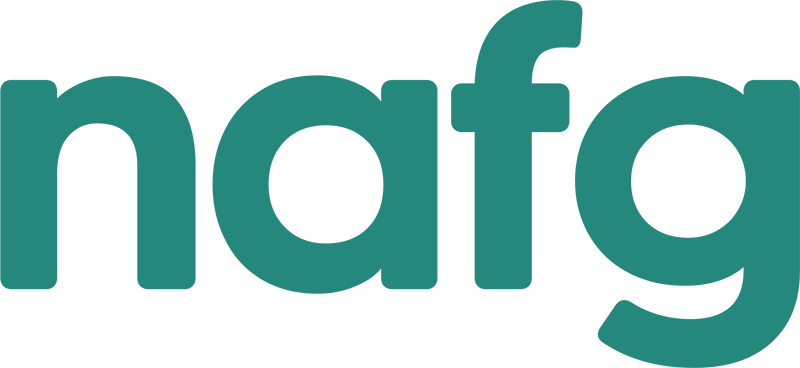
When it comes to egg donation, many recipients and donors often refer to the entire medical screening process as “genetic testing”. However, at Northeast Assisted Fertility Group, we emphasize that genetic testing is just one component of a comprehensive and essential donor screening process. Understanding each step helps set realistic expectations and ensures the safety and well-being of everyone involved. In this guide, we’ll walk you through the full egg donor screening process, explain what donors and recipients can expect, and highlight why each step plays a critical role in achieving a successful outcome.
The Importance of Comprehensive Egg Donor Screening
Egg donor screening is a multi-layered process that protects the health of the donor, the recipient, and the future child. Northeast Assisted Fertility Group follows industry-leading protocols to ensure that only healthy, qualified donors participate in our egg donor program. This careful approach helps maximize the chances of a successful outcome and minimizes potential risks.
Step 1: Egg Donor Application and Initial Review
The journey begins when a prospective egg donor completes a detailed application. This questionnaire covers her personal and family medical history, as well as her basic biography, including where she grew up, her education, employment history, talents, and interests. This first step is key as many egg donor applicants are screened out at this stage, before any recipient ever sees their profile.
If the egg donor meets our eligibility requirements, we conduct a personal interview, either in person or virtually. We also collect supplementary materials, such as current and childhood photos, a government-issued photo ID, and academic transcripts if relevant. Once an egg donor is matched with a recipient, the clinic has her fill out their own questionnaire and schedules a phone or video consultation with one of their staff members.
Step 2: Ovarian Reserve Testing (AMH Test)
The screening process typically begins with an AMH (anti-Müllerian hormone) blood test, which can be completed at a lab or directly at the clinic. This test serves as a general indicator of ovarian reserve and helps determine basic eligibility, as it’s conducted before any other medical evaluations. It’s quick, simple, and relatively low-cost. However, its main drawback is potential inaccuracy, particularly in egg donors who have been on hormonal birth control, which can artificially lower AMH levels. Previously, a more comprehensive hormone panel and ultrasound performed on the third day of the egg donor’s menstrual cycle, known as the “day three test,” was considered more precise, but it has largely been phased out due to inconvenience. In our experience, AMH levels don’t always predict the number of mature eggs retrieved: a high result doesn’t guarantee a high yield, and a lower result doesn’t necessarily mean fewer eggs. Nonetheless, many doctors and egg donor recipients continue to rely on the AMH test. Most clinics require a minimum AMH level of 2.0, which most egg donors are able to meet.
Step 3: Genetic Testing and Counseling
If the egg donor’s AMH results are acceptable, she moves on to genetic screening. The donor is sent a genetic test kit, which she completes and returns. Results usually take two to four weeks to process. Modern genetic panels can screen for over 500 conditions, but there are only a few findings that would categorically disqualify an egg donor: Fragile X syndrome, Spinal Muscular Atrophy (SMA), and sometimes any mutation of Cystic Fibrosis, depending on clinic policy.
It’s very common for egg donors to be recessive carriers for other genetic conditions. This is rarely a barrier unless the intended father is also a carrier for the same condition, which is statistically unlikely. As part of the process, a genetic counselor reviews the results with both donor and recipient to ensure everyone understands the findings. Most egg donors are not disqualified based on their genetic results.
Step 4: Clinical and Psychological Screening
After passing the genetic screening, the egg donor undergoes a comprehensive clinical evaluation. This includes a physical exam, an antral follicle scan (an ultrasound to count egg follicles), and blood and urine tests for infectious diseases and drug screening, often referred to as “FDA labs.” These tests are required by federal guidelines to ensure the safety of all parties.
A psychological assessment is also a key part of the process. The egg donor meets with a licensed social worker for an in-depth discussion, and may be asked to complete a standardized written test such as the Personality Assessment Inventory (PAI) or the Minnesota Multiphasic Personality Inventory (MMPI). In our experience at Northeast Assisted Fertility Group, psychological screening failures are rare, but they do occasionally occur.
It’s not uncommon for egg donors to test positive for an asymptomatic sexually transmitted disease (STD) or for marijuana, now that it’s legal in many states. These findings don’t necessarily mean permanent disqualification. For an STD, the egg donor must get treated and then retest; if she tests negative, she becomes eligible again a year after the negative result. For marijuana, the egg donor must abstain and retest a few weeks later. FDA lab results are typically available in a few days, the antral follicle count is determined immediately, and the psychological report may take about a week.
How Long Does the Egg Donor Screening Process Take?
Depending on clinic efficiency and turnaround times for test results, the full egg donor screening process usually takes two to three months. In our experience, about three out of four first-time egg donors pass all screenings and become eligible to donate.
What Happens If an Egg Donor Is Disqualified?
Disqualification can occur at any stage, but it’s most common during the initial application or genetic testing. If an egg donor is disqualified due to a treatable condition, such as an STD, she may become eligible again after successful treatment and a waiting period.
Why Choose Northeast Assisted Fertility Group for Egg Donation?
At Northeast Assisted Fertility Group, we are committed to guiding both egg donors and recipients every step of the way. Our rigorous egg donor screening protocols, expert team, and compassionate approach help ensure safety, transparency, and a positive experience for everyone involved.
Exploring Egg Donation? Take the Next Step With Confidence
Whether you’re thinking about becoming an egg donor or hoping to grow your family through egg donation, Northeast Assisted Fertility Group is here to support you with personalized guidance and trusted expertise. Our experienced team is ready to answer your questions, offer clear information, and connect you with the tools and resources you need. If you’re interested in becoming an egg donor, visit our online application to get started. If you’re looking for an egg donor, contact us to gain access to our exclusive donor database and learn more about the egg donor matching process.



